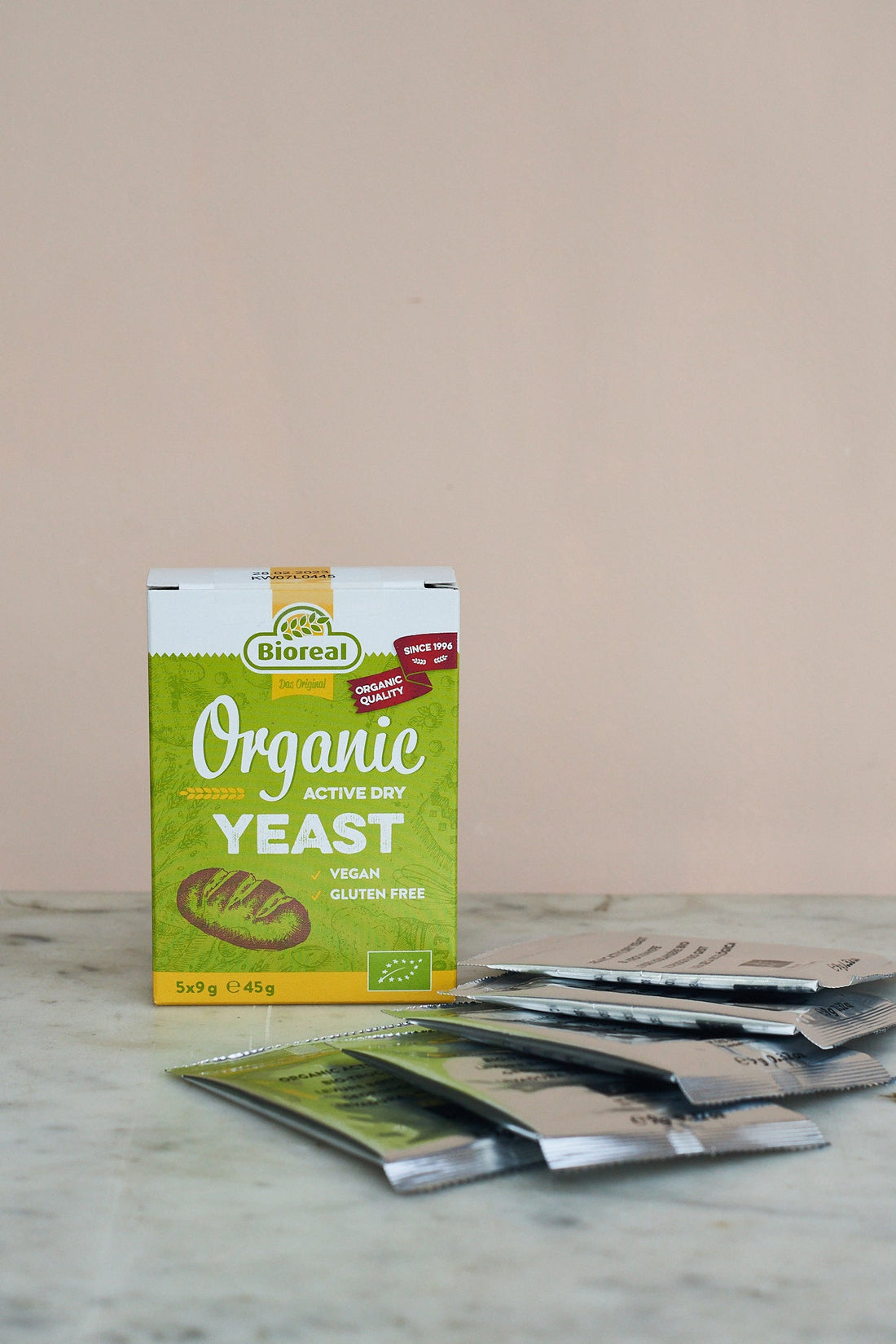Organic Yeast

Why our ORGANIC YEAST is so unique!
Aside from water, flour and salt, another ingredient that can help shape the character of your baked goods is yeast.
Yeast plays a critical role is the flavour, shape and texture of your loaf. We have two types of yeast available: Dried and Fresh.
Purely organic, no chemicals! All the ingredients are entirely natural!

To produce conventional yeast, chemical nitrogen sources such as ammonia and ammonium salts, as well as lyes, acids and synthetic vitamins and growth substances are used.
Unlike conventional yeast, our organic yeast is produced using organic cereals without the use of additives. Selected strains of yeast and lactic acid bacteria cultures are bred in a wholly organic nutrient solution made from organic grain, pure spring water and enzymes.
No chemical additives are used during the fermentation process and pure organic sunflower oil is used as an anti-foaming agent.
The process, which is unique in the world, even makes the labour-intensive washing process superfluous.
Since no chemical additives are used, BIOREAL organic yeast needs no rinsing either, so no chemically contaminated waste water is produced from this way of production. The flavour is significantly better than the non-organic variety which is designed purely for fast fermentation rather than developed flavour.
Suitable for: Vegetarians and Vegans. Certified kosher
Baking Tips
* Our fresh yeast doesn’t need to be activated, it should be mixed straight in with the other ingredients. The shelf life is shorter than with dried yeast, after the printed Best Before date the activity will slow down slowly. Fresh yeast should not be frozen as it will deteriorate quickly and lose its effectiveness. To store fresh yeast, keep it in an airtight container in the fridge, between 2-8°C
*It can help to crumble the yeast into the recipe’s water for even dispersion. For best results, ensure the water is lukewarm. Temperature is a critical factor in how your yeast will behave; above 40 degrees the yeast will die so don’t mix with hot water
*Don’t use fresh yeast if you’re looking to set a delayed timer on a bread machine, it will likely not do very well if it’s been sat out of the fridge doing nothing for a number of hours
*Organic Dried Yeast does not need to be dissolved in water, rather it should be mixed with the flour.
*Once opened, store the dried yeast in a sealed container in fridge; stored in this way it will last for up to 4 months at optimum activity, after which it will gradually slow down. Should not be stored at a temperature of over 20°C. Our yeast is natural and doesn’t contain any additives, therefore is more sensitive to high temperatures.
Should I use Dried yeast or fresh yeast?These two types of yeast are interchangeable in recipes. Generally, you would use 70% dry yeast weight compared to fresh yeast in a recipe. Dried yeast is very convenient and has a longer shelf life.




